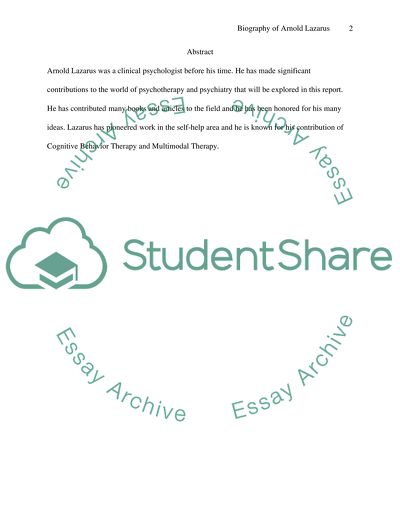Cite this document
(Life and Accomplishments of Arnold Lazarus Report, n.d.)
Life and Accomplishments of Arnold Lazarus Report. https://studentshare.org/medical-science/1556116-arnold-lazarus
Life and Accomplishments of Arnold Lazarus Report. https://studentshare.org/medical-science/1556116-arnold-lazarus
(Life and Accomplishments of Arnold Lazarus Report)
Life and Accomplishments of Arnold Lazarus Report. https://studentshare.org/medical-science/1556116-arnold-lazarus.
Life and Accomplishments of Arnold Lazarus Report. https://studentshare.org/medical-science/1556116-arnold-lazarus.
“Life and Accomplishments of Arnold Lazarus Report”. https://studentshare.org/medical-science/1556116-arnold-lazarus.


